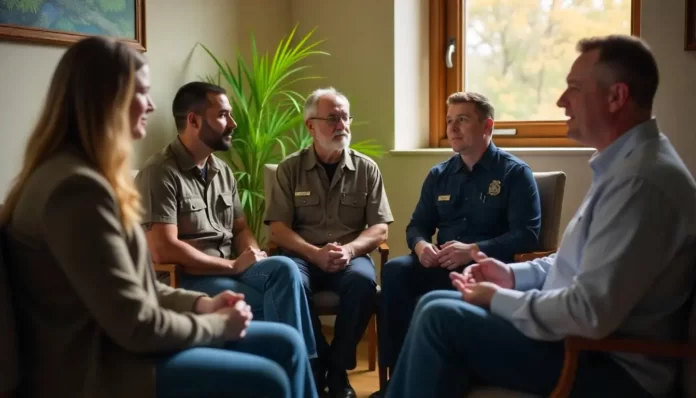California senators have unanimously supported a bipartisan proposal aimed at establishing a psilocybin pilot program to support military veterans and first responders.
The Senate Health Committee advanced the bill, authored by Senators Josh Becker (D) and Brian Jones (R), in a 7-0 vote following the adoption of several amendments.
The measure calls for the creation of a pilot project within the University of California system to explore and develop “psilocybin services” in as many as five counties throughout the state.
Under the plan, university campuses would manage protocol development, training for facilitators, securing institutional review board approvals, and overseeing data collection and reporting related to the program.
Local Partnerships and Reporting Requirements
Each local initiative would be required to collaborate with mental health clinics, hospice services, veterans’ facilities, or similar community-based providers serving the target population. The bill also mandates that outcomes and key findings from the pilot projects be reported to the state legislature by January 15, 2030.
To support these efforts, the legislation proposes the establishment of a “Veterans and First Responders Research Pilot Special Fund,” ensuring continuous appropriations for the program’s operation.
Addressing an Urgent Crisis
Senator Becker emphasized the urgent need for alternative mental health treatments, citing alarming suicide rates among veterans and first responders.
He noted that many individuals in these groups are seeking psilocybin treatments through unregulated sources or by traveling abroad, highlighting a significant gap in the current mental health care system. This program, he argued, represents a responsible step toward offering safer, regulated therapeutic options.
Growing Support for Psilocybin Research
A findings section of the legislation highlights emerging research suggesting that psilocybin and its active compound psilocyn may offer substantial mental health benefits, particularly for trauma-related conditions. It also points out that the U.S. Food and Drug Administration (FDA) has granted breakthrough therapy designation for psilocybin-based treatments targeting depression resistant to standard therapies.
The bill stresses that psilocybin should be administered in a safe, supervised, and ethical manner, and suggests that California is well-positioned to conduct federally compliant pilot studies through partnerships with licensed community healthcare providers.
The pilot will prioritize veterans and retired first responders diagnosed with post-traumatic stress disorder (PTSD), end-of-life anxiety, and other qualifying conditions based on local program needs.
Data Collection and Next Steps
Under the proposal, the University of California system would be responsible for compiling comprehensive data, analyzing program results, and submitting a detailed final report to the legislature by the start of 2030.
Additional amendments approved by the Senate Health Committee included clarifications regarding participant eligibility, definitions within the bill, and a requirement for preliminary reports from local pilots to be submitted to the University of California, the California Health and Human Services Secretary, and the Governor’s Office.
The legislation is now scheduled to be heard next by the Senate Education Committee.
A Complicated History for Psychedelics Reform in California
Efforts to advance psychedelics-related legislation in California have seen mixed results in recent years. In 2023, a Senate committee effectively halted a bill that would have legalized supervised psychedelic service centers where adults could access substances such as psilocybin, MDMA, mescaline, and DMT.
That measure was designed in response to concerns raised by Governor Gavin Newsom after he vetoed a broader psychedelics reform package, citing a need for more structured safeguards.
Meanwhile, Assemblymember Marie Waldron (R) led a separate initiative focused on promoting research into psychedelics and laying the groundwork for potential regulated access in the future. Her bill advanced through the Assembly last session with strong bipartisan support.


